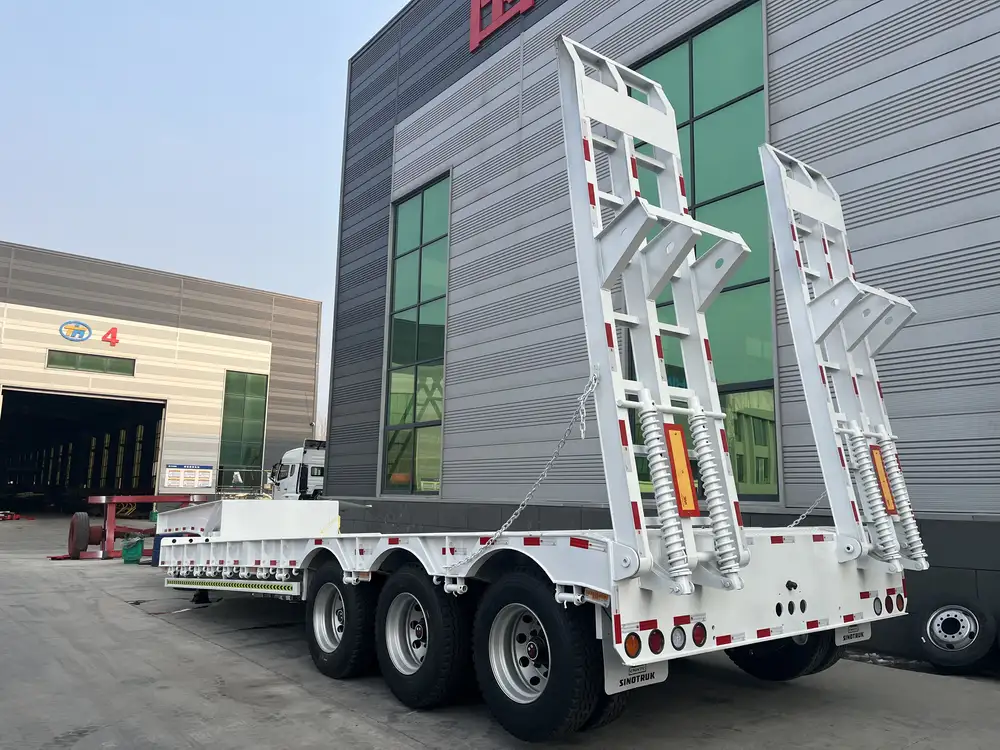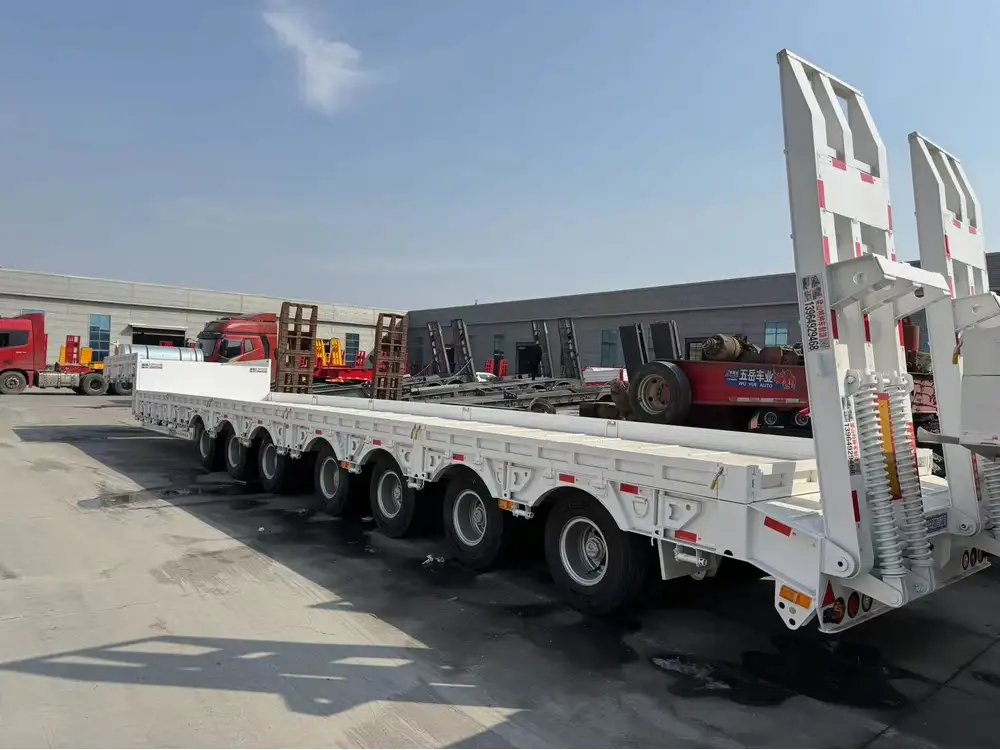Understanding consumer protection laws can be intricate, particularly when it comes to specialized vehicles such as flatbed trailers. A pertinent question arises: Is there a lemon law for flatbed trailers? Lemon laws, which primarily protect consumers of motor vehicles, can variably apply to trailers depending on jurisdiction. This article dissects the nuances, eligibility, and processes relevant to lemon laws that can potentially include flatbed trailers.
Overview of Lemon Laws
What Are Lemon Laws?
Lemon laws are statutes designed to protect consumers from defective products, primarily vehicles. These laws allow consumers to seek a remedy—typically a refund or replacement—when a product is found to be defective after multiple attempts to repair it. The criteria and processes can differ significantly across states, creating a patchwork of protections.

Key Components of Lemon Laws
- Eligibility Criteria: Generally involves defects that significantly impair the use, safety, or value of the vehicle.
- Number of Repair Attempts: States typically require a specific number of failed repair attempts before qualifying for a refund or replacement.
- Time Frame: There is usually a time limit within which consumers must report defects to qualify.
- State Variations: Each state has its laws specifying coverage for different vehicle categories.
The Intersection of Lemon Laws and Flatbed Trailers
Understanding Flatbed Trailers
Flatbed trailers are essential tools for transporting oversized and unwieldy cargo. They are characterized by their flat surface and absence of sides or a roof. Commonly used in various industries, including construction, railway, and agriculture, flatbed trailers can be subjected to wear and tear, which may lead to defects.

Are Flatbed Trailers Covered by Lemon Laws?
While lemon laws predominantly focus on motor vehicles, their applicability to flatbed trailers hinges on local state laws. Some states extend lemon law protections to all vehicles that can be driven on the road, while others categorize flatbed trailers differently. Below are essential facets to consider regarding lemon laws and flatbed trailers.
State-Specific Regulations
| State | Lemon Law Coverage |
|---|---|
| California | Covers vehicles, may include trailers under specific circumstances. |
| New York | Typically limited to passenger vehicles but consult local regulations. |
| Texas | Primarily applies to motor vehicles; trailers may be excluded. |
| Florida | May cover trailers under certain conditions but varies by interpretation. |
Case Studies: Lemon Law Applications to Flatbed Trailers

Case Example 1: California
In California, the lemon law is comprehensive and offers considerable protections. In certain instances, flatbed trailers that are primarily utilized for commercial purposes may be afforded similar protections as regular vehicles, provided they meet specific criteria, such as being purchased from a dealer and having significant defects.
Case Example 2: Florida
Florida’s lemon law traditionally focuses on new vehicles, excluding most trailers. However, if a flatbed trailer is utilized in conjunction with a commercial vehicle (like a truck), it could be argued that the trailer is part of a larger vehicle system, potentially allowing for lemon law protections if defects substantially affect its use.
What Defects Qualify Under Lemon Law?

Types of Defects
For flatbed trailers, specific defects may qualify under lemon law statutes. These include:
- Structural Failures: Issues like cracked frames or compromised support beams that affect stability.
- Electrical Malfunctions: Failure of lighting systems essential for road safety.
- Brake Failure: Any defects impacting braking systems essential for safe operation.
- Tire Integrity: Issues with tires that can lead to unsafe driving conditions.
Assessment of Severity
A defect must significantly impair the use, safety, or value of the trailer to qualify. For instance, a minor cosmetic issue may not be enough to meet the threshold for lemon law claims, while repeated structural failures likely would.
What to Do If You Have a Defective Flatbed Trailer

Step 1: Document Everything
Maintain meticulous records of all communications, repairs attempted, and any costs incurred due to the defect. Documentation is essential for substantiating your case. Consider keeping records of:
- Repair order receipts.
- Email and telephone correspondence with the dealer.
- Photographs of the defects themselves.
Step 2: Contact the Manufacturer or Dealer
Engage directly with the dealer or manufacturer. Provide them with a detailed account of the issue and your documentation. They may be obligated to repair the defect under warranty before legal proceedings commence.
Step 3: Understand Your State’s Lemon Law
Dig deeply into the specific lemon law applicable in your state. Identify:
- The exact specifications for qualifying as a lemon.
- The protocol for filing a claim.
- Necessary timelines to adhere to.

Step 4: Seek Legal Advice
If the situation remains unresolved, consulting a lawyer who specializes in lemon laws can be invaluable. They can guide you through the complexities and potentially advocate on your behalf.
A Comparative Analysis: Lemon Laws vs. Warranties
Key Differences
| Aspect | Lemon Laws | Warranties |
|---|---|---|
| Coverage | State-specific; often includes high-impact defects. | Typically limited to specified repairs or replacements under warranty terms. |
| Duration | Varies by state, often includes a claim period. | Defined by the warranty term on purchase. |
| Filing Process | Legal process that may require arbitration or court intervention. | Usually involves notifying the dealer or manufacturer directly. |
| Outcome Options | Refund or replacement of the vehicle. | Repair or replacement of defective parts only. |

Similarities
- Both mechanisms aim to resolve product issues, protecting consumer rights.
- Documentation is critical for asserting claims in both cases.
Potential Challenges in Lemon Law Claims for Trailers
Misinterpretation of Laws
Given the limited use of lemon laws for flatbed trailers, consumers may find themselves entangled in legal uncertainties. Misunderstanding state laws can lead to rejection of plausible claims.

Complications with Usage
If the flatbed trailer has been heavily used in commercial operations, this may complicate claims. Manufacturers may argue that wear and tear should not fall under lemon law protections due to the nature of its intended use.
Conclusion: Navigating Your Rights
Understanding whether lemon laws apply to flatbed trailers is paramount for consumers who encounter defects. The intersection of trailer defects and lemon law protections remains complex, underscoring the need for vigilance and informed action from flatbed trailer owners. By documenting issues meticulously, understanding local laws, and collaborating with professionals, consumers can take significant steps toward remediation.
Ultimately, while the practical application of lemon laws to flatbed trailers can vary, being proactive will arm consumers with the knowledge necessary to advocate for their rights effectively. Whether considering purchasing a trailer or dealing with a defect, awareness is key to navigating the multifaceted landscape of lemon laws and protective consumer laws.



